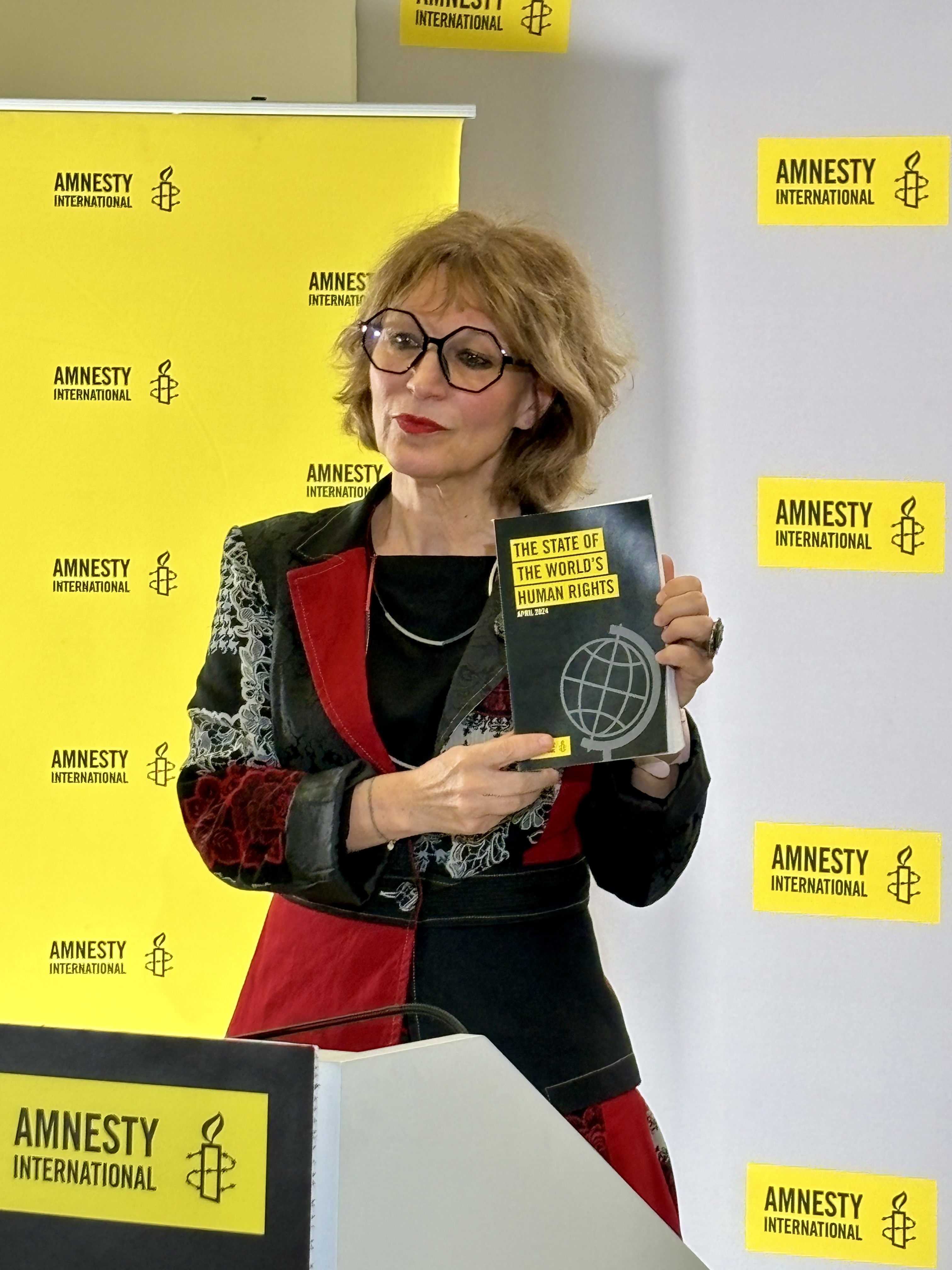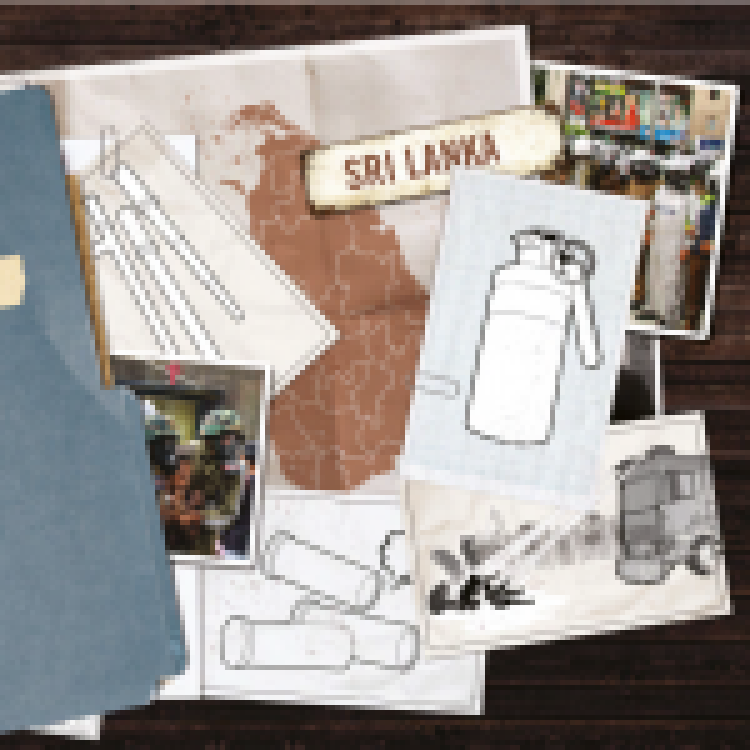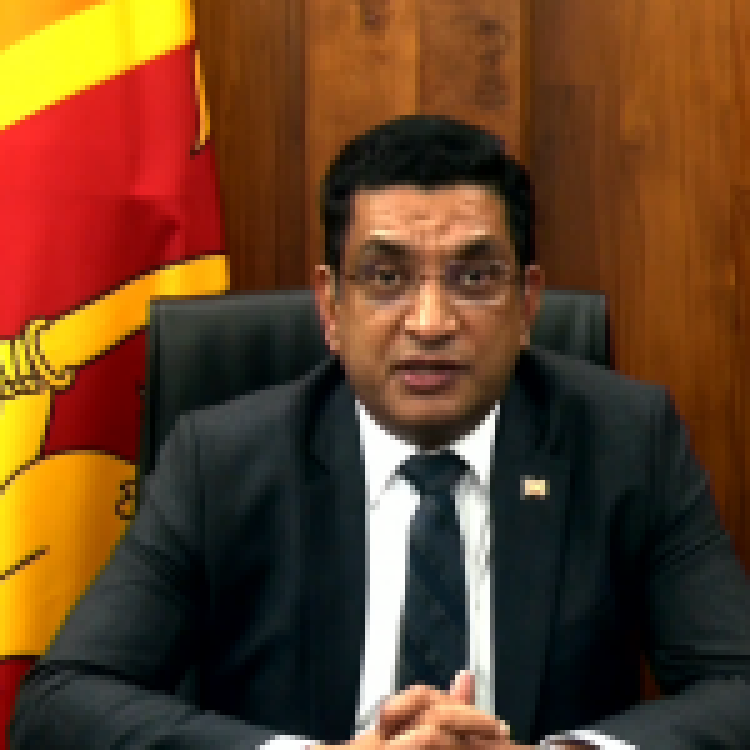
Agnès Callamard, the French head of Amnesty, warned of ‘alarming human rights repression and prolific rule-breaking’ as she launched the annual world report. Photograph: Amnesty Tech
As part of their global annual report, Amnesty International slammed the Sri Lankan government’s human rights record noting that “impunity remained entrenched with the Sri Lankan government making no notable progress around the right to truth, justice and reparation for those affected by war”.
The wide-ranging report detailed how the Sri Lankan continued to oppose measures to advance accountability for the war crimes committed by the Sri Lankan military; how the economic crisis has seen a doubling of the number of people beneath the poverty line; and the government concerted efforts to curb of freedom of expression, amongst other issues.
Accountability
Commenting on the proposed “truth commission”, the report details that 9 international human rights organisations have criticised the plans in September. The report goes on to state:
“Given the failure of domestic commissions of inquiry to ensure accountability, some victim communities rejected the plans outright. Others highlighted the need for trust-building measures before establishing any truth commission, noting concerns around continuing surveillance and the lack of space memorialisation.”
The report also details how other domestic transitional justice mechanisms (the Office on Reparations and the Office on Missing Persons) have made no notable progress over the year according to publicly available information. “Many cases –exemplars of impunity for human rights violations – dragged on in the domestic court system, again with no notable progress”.
Amnesty also details the government’s persistent rejections of international mechanisms such as the Sri Lanka Accountability Project, which was established in 2021.
Despite Sri Lanka’s assurances to the UNHRC of the steps the government had been taking, Amnesty noted that the Sri Lankan government ‘merely noted and did not support most recommendations made during the Universal Periodic Review in March on accountability for war-time serious violations of human rights and humanitarian law.”
Economic failure
Commenting on the state of poverty on the island, the report highlights the World Bank’s finding that the number of people living below the poverty line has doubled since 2022.Whilst the government has introduce a new “Aswesuma” welfare benefit payment scheme, Amnesty warns that the narrow target of the programme may mean that “only approximately 1.1 of the 2 million families living below the poverty level were eligible”. It risked excluded many of the most vulnerable including those working informal sector, on daily wage incomes, from the Malaiyaha Tamil community, others with low or precarious incomes, and those whose incomes were lost due to unemployment.
Freedom of expression
Amnesty also slammed continued efforts by the Sri Lankan government to curb freedom of expression. The report cites an incident in November were 9 Tamils were arrested under Sri Lanka’s draconian Prevention of Terrorism Act for a commemoration vigil in the eastern town of Batticaloa.
The report further details the persistent use of the PTA by the Sri Lankan government despite pledges to repeal the legislation. Amnesty notes that the proposed Anti-Terrorism Act, which seeks to replace the PTA, makes minor changes but the legislation’s capacity to enable human rights violations remained. The human rights organisation also criticised Sri Lanka’s Online Safety Bill, which the OHCHR has slammed noting that; “many sections of the Bill contain vaguely defined terms and definitions of offences which leave significant room for arbitrary and subjective interpretation and could potentially criminalize nearly all forms of legitimate expression, creating an environment that has a chilling effect on freedom of expression”.
Amnesty also criticised the arrests of social commentors for their criticism of Buddhism.
The report also referenced the many protests which took place last year adding that the Sri Lankan government sought to ban protests and frequently resorted to excessive and other unlawful force against protesters - deaths and many injuries resulted in both countries. In a different report released by Amnesty earlier this month, it called on the international community to “urgently review cooperation with the Sri Lankan government” including the training and provision of its security forces, as it released a new report detailing how the military and police engaged in violent suppression of protests.




